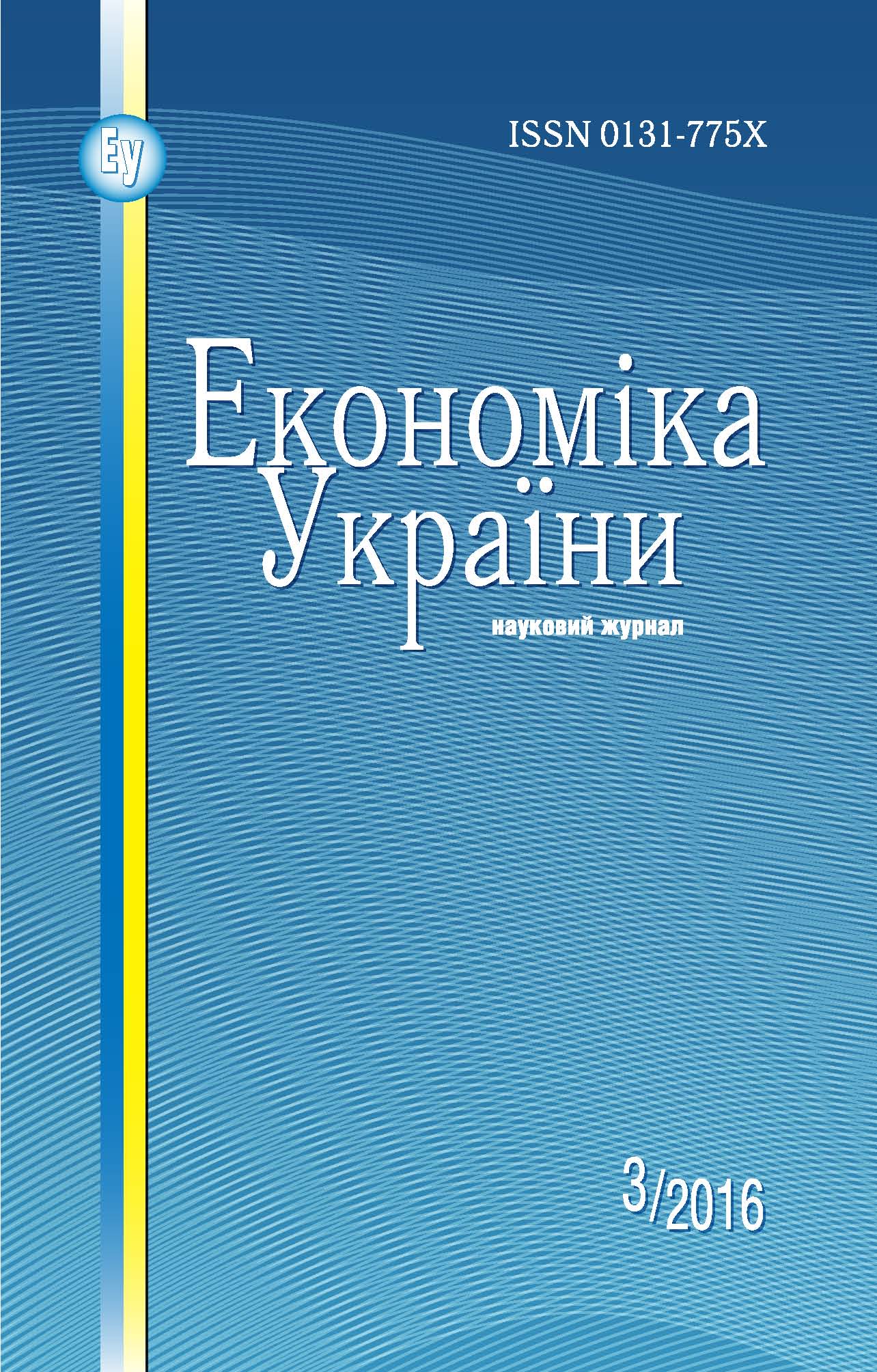ФОРМИ ПРОЯВУ ІНТЕЛЕКТУАЛЬНОГО ЛІДЕРСТВА
Ключові слова:
лідерство, інтелектуальне лідерство, форми прояву лідерства, рівень реалізації лідерстваАнотація
В сучасних висококонкурентних умовах важливим завданням для країн світу стає досягнення не просто економічного розвитку, а лідерських позицій, які самі по собі вже виступають інструментом конкурентної боротьби. Прояв лідерства стає важливим як серед окремих особистостей (у політиці, у ділових та інших колах), так і на рівні компаній та національних економік. У сучасному контексті істотно змінюється розуміння лідерства – тепер воно сприймається значно ширше, ніж психологічний феномен, стає елементом процесу управління колективом і, як засвідчує практика, дедалі більше переходить у площину економічного аналізу на різних рівнях суспільного устрою.
В умовах становлення постіндустріального суспільства проривний розвиток країн та окремих суб‘єктів (корпорацій, університетів та ін.) забезпечується не стільки наявністю ресурсів, скільки технологіями їх використання (у тому числі з метою продукування якісно нових продуктів і послуг). У сучасному світі країна-лідер – це в першу чергу інтелектуальний центр, який є інтегратором, ініціатором і організатором активних дій.
Основну увагу приділено визначенню критеріїв інтелектуального лідерства і форм його прояву. Виокремлено 2 основні групи критеріїв: по-перше, щодо якості людських ресурсів (їх інтелектуальної складової) і, по-друге, щодо результативності інтелектуальної діяльності. Формами прояву інтелектуального лідерства стають високі позиції у рейтингах, оцінках, індексах тощо, які враховують різні аспекти і показники інтелектуальної складової людських ресурсів або результативності інтелектуальної діяльності. Здійснено спробу визначити інтелектуальну складову у світових рейтингах, її вагові показники за різними критеріями.
Актуалізація проблеми лідерства у сучасному глобальному середовищі пов’язана як із загостренням конкуренції, так і з ускладненням структури глобальної економіки та факторів її розвитку. Ускладнення суб’єктної та об’єктної природи лідерства дістає свій прояв у диверсифікації форм діяльності та реалізується на різних рівнях економічної активності. Виокремлення інтелектуального лідерства підтверджується, з одного боку, підвищенням ролі інтелектуальних ресурсів у досягненні лідерських позицій за різноманітними критеріями економічного та інноваційного розвитку, а з іншого – тим фактом, що інтелектуальна діяльність стає самостійною сферою глобального змагання. Зростання значення інтелектуальної складової доведено за двома основними напрямами: по-перше, через аналіз кількості та якості людських ресурсів; по-друге, через кількість і якість результатів інтелектуальної діяльності.
Посилання
Owen H., Hodgson V., Gazzard N. Prizvanie – Lider: Polnoe Rukovodstvo po Effektivnomu Liderstvu [The Leadership]. Dnepropetrovsk, Balans Biznes Buks, 2005 [in Russian].
Senge P., Kleiner A., Roberts Ch. et al. Tanets Peremen: Novye Problemy Samoobuchayushchikhsya Organizatsii [The Dance of Change: The Challenges to Sustaining Momentum in Learning]. Moscow, Olimp-Biznes, 2003 [in Russian].
Kalenyuk I., Tsymbal L. Priroda liderstva v sovremennykh usloviyakh [The nature of leadership under the modern conditions]. Ekon. Teoriya – Econ. Theory, 2015, No. 2, pp. 86–98 [in Russian].
Blondel J. Political Leadership: Towards a General Analysis. London – Beverly Hills – New Delhi, SAGE, 1987.
Downton J., Rebel Jr. Leadership: Commitment and Charisma in the Revolutionary Process. New York, London, 1973.
Blanchard K. Liderstvo: k Vershinam Uspekha [Leading at a High Level]. St.-Petersburg, Piter, 2008 [in Russian].
Daft R. L. Uroki Liderstva, pod red. I.V. Andreevoi [Leadership Lessons]. Moscov, Eksmo, 2008 [in Russian].
Fleishman E.A., Harris E.F. Patterns of leadership behavior related to employee grievances and turnover. Personnel Psych., 1962, Vol. 15, Iss. 1, pp. 43–56, available at: onlinelibrary.wiley.com/doi/10.1111/j.1744-6570.1962.tb01845.x/abstract.
Vozna M. Pidkhody do otsinky liders’kykh yakostei kerivnyka [Approaches to the estimation of chief’s leading quality], available at: kerivnyk.info/2014/04/vozna.html [in Ukrainian].
Kremen’ V.G., Pazynich S.M., Ponomar’ov O.S. Filosofiya Upravlinnya [The Philosophy of Management]. Kharkiv, NTU “KhPI”, 2008 [in Ukrainian].
Kets de Vries M. Mistika Liderstva. Razvitie Emotsional’nogo Intellekta [The Leadership Mystique]. Moscow, Alpina, 2003 [in Russian].
Luk’yanenko D., Kolesov V., Kolot A., Stolyarchuk Ya. et al. Global’noe Ekonomicheskoe Razvitie: Tendentsii, Asimmetrii, Regulirovanie, pod red. D. Luk’yanenko, A. Poruchnika, V. Kolesova [Global Economic Development: Tendencies, Asymmetries, and Regulation], edited by D. Luk’yanenko, A. Poruchnik, V. Kolesov. Kiev, KNEU, 2013 [in Russian].
##submission.downloads##
Опубліковано
Як цитувати
Номер
Розділ
Ліцензія
Авторське право (c) 2024 Економіка України

Ця робота ліцензується відповідно до Creative Commons Attribution-NonCommercial-NoDerivatives 4.0 International License.



